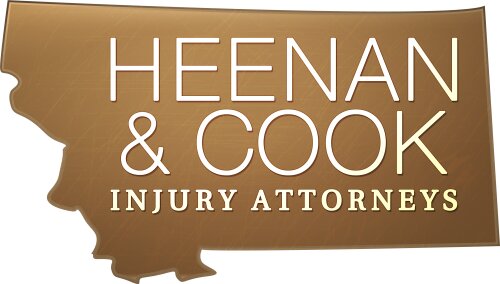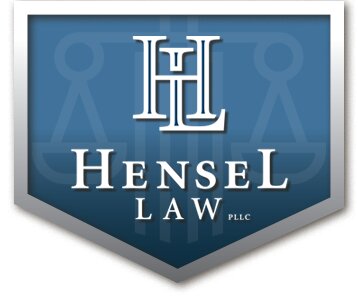Best Workers Compensation Lawyers in Billings
Share your needs with us, get contacted by law firms.
Free. Takes 2 min.
List of the best lawyers in Billings, United States
About Workers Compensation Law in Billings, United States
Billings residents work in diverse industries, from healthcare and retail to construction and energy. In Montana, workers compensation is a no fault system designed to provide medical care and wage replacement if you are injured on the job. The system is administered by the Montana Department of Labor and Industry and supervised by the Montana Workers' Compensation Court. Your claim is typically handled through your employer, their workers' compensation insurer, or by the state if coverage is provided through a state fund.
Key benefits usually include medical care for work related injuries, wage replacement while you cannot work, and benefits for permanent impairment or vocational rehabilitation when needed. While many injuries resolve quickly, some cases require legal guidance to ensure timely medical treatment and correct benefit payments. When Billings workers navigate disputes or complex medical issues, consulting a qualified attorney or legal counsel can help protect their rights and clarify options.
Source: Montana Department of Labor and Industry - Workers' Compensation Division
For residents seeking guidance, it is important to understand that disputes are typically resolved through the Montana Workers' Compensation Court, and many questions can be resolved by the department's guidance before formal proceedings begin. This guide provides a practical overview tailored to Billings and surrounding communities.
Why You May Need a Lawyer
Seeking legal help can prevent costly mistakes and delays in your claim. The following real world scenarios, common in Billings, illustrate when you should consider hiring an attorney or solicitor for workers compensation matters:
- Medical treatment or wage benefits denied after a Billings job injury. A factory worker in Billings is told the employer will not cover a needed surgery. An attorney can help navigate appeals, gather medical documentation, and press for appropriate treatment and wage replacement.
- Disputed impairment ratings after a construction site accident. An electrician sustained back injuries on a Billings job site and faces a lower impairment rating than expected. A lawyer can obtain independent medical exams and advocate for a fair rating and compensation.
- Partial or terminated benefits while you recover locally in Billings. If the insurer stops wage benefits too soon, an attorney can pursue reinstatement or a hearing with the Workers' Compensation Court.
- Complex medical necessity issues or authorized treatment questions. You need authorized medical care beyond standard bills, such as physical therapy or specialist consultations, and your insurer denies coverage.
- Return to work with restrictions and a vocational plan. When your doctor limits work, a lawyer can help negotiate light duty or vocational rehabilitation to help you reenter the workforce in Billings.
- Third party liability or settlements for a long term injury. If a third party contributed to your work injury, counsel can help coordinate settlements and ensure you keep eligible benefits while addressing all responsible parties.
Local Laws Overview
The Billings area follows Montana's state level workers compensation laws. The core framework is defined by the Montana Workers' Compensation Act and implemented through state regulatory bodies. Below are two to three named authorities you should know when pursuing a claim in Billings:
Montana Workers' Compensation Act
The Montana Workers' Compensation Act governs eligibility for medical care, wage replacement, and related benefits for work related injuries. It is codified in the Montana Code Annotated under Title 39, often cited as the Montana Workers' Compensation Act. Applicants and employers must comply with procedural rules set forth in this act. Recent updates to the act are published by the Montana Legislature for public review. For current text and amendments, consult the Montana Legislature's website.
Administrative Rules of Montana - Workers' Compensation
The Administrative Rules of Montana provide the detailed regulations that implement the act. These rules cover medical treatment guidelines, reporting requirements, compensation calculations, and appeals procedures. They are designed to ensure consistent administration of benefits across all counties, including Yellowstone County where Billings is located. Check ARM updates on official state resources.
Montana Workers' Compensation Court
The Montana Workers' Compensation Court handles disputes related to claims, benefits, and medical issues arising from work injuries. Decisions from the court can be appealed through the Montana Supreme Court. This court focuses specifically on workers' compensation issues rather than general civil litigation, which can speed up resolution in many cases. See court resources for local hearing schedules and forms.
In Billings, recent trends emphasize timely medical care, clear communication between insurers and claimants, and stronger consideration of vocational rehabilitation when appropriate. For the most current guidance, consult the Montana Department of Labor and Industry and the Montana Legislature for updated texts and rules.
Source: Montana Department of Labor and Industry - Workers' Compensation Division; Montana Courts - Workers' Compensation Court
Frequently Asked Questions
What is workers compensation in Montana?
Workers' compensation in Montana is a no fault system that provides medical care and wage benefits for work related injuries. It covers employees regardless of fault and is administered by state agencies. An attorney can help you navigate eligibility and benefits.
How do I start a workers compensation claim in Billings?
Notify your employer promptly about the injury and seek medical treatment. Your employer files the claim with their insurer, who assigns an adjuster. If issues arise, contact an attorney for guidance on notices and deadlines.
What documents does a lawyer need to review my case?
Medical records, accident reports, wage statements, prior claim history, and correspondence with the insurer are essential. Bring any communication from your employer, insurer, or the Workers' Compensation Court.
Do I need a lawyer for a claim denial?
Yes. Denials often involve complex medical or legal issues that benefit from an attorney's review. A lawyer can assess the denial and advise on appeal options.
What is the difference between a settlement and a hearing?
A settlement is a negotiated resolution with the insurer or court approval. A hearing is a formal process where a judge decides the outcome if settlement fails.
How much does a workers compensation lawyer cost?
Most Montana workers' compensation lawyers work on a contingeny basis. You typically pay nothing upfront; fees are paid from applicable benefits after a successful result or settlement.
What is a permanent impairment rating?
A permanent impairment rating assesses lasting effects from your injury. It affects disability benefits and potential settlement values. An attorney can help obtain objective impairment evaluations.
How long does a typical Montana workers' compensation claim take?
Timelines vary by complexity and county. Simple claims may resolve within weeks, while contested hearings could take several months or longer depending on the schedule of the Workers' Compensation Court.
Do I qualify for temporary disability benefits?
Temporary disability benefits apply if you cannot work due to a work related injury and the injury is covered under the act. A medical professional must support work restriction and incapacity.
Is there a time limit to file a workers compensation claim in Billings?
Yes. There are specific notice and filing deadlines. Missing deadlines can bar benefits, so prompt action with a lawyer is advisable after an injury.
Should I accept a settlement offer from the insurer?
Not without understanding its value. An attorney can determine whether a settlement fairly compensates current and future medical needs and dispute resolution costs.
Can I appeal a decision from the Workers' Compensation Court?
Yes. If you disagree with a decision, you can pursue an appeal through the Montana Supreme Court. An attorney can guide you through the appellate process.
Additional Resources
These official resources provide authoritative information and services related to workers compensation in Montana:
- Montana Department of Labor and Industry - Workers' Compensation Division - Official state resource for claims, benefits, medical guidelines, and employer requirements. Visit site.
- Montana Courts - Workers' Compensation Court - Court system handling disputes and appeals in workers' compensation matters. Visit site.
- U.S. Department of Labor - Office of Workers' Compensation Programs (OWCP) - Federal guidance for workers who file under federal programs or who require related benefits. Visit site.
Next Steps
- Collect injury and employment records within 24 hours of an incident. Gather dates, locations, witnesses, and a descriptive summary of how the injury occurred. This helps establish a clear claim path.
- Notify your employer and request a formal claim filing. Do this in writing and keep copies for your records to ensure demonstrable notice.
- Seek prompt medical evaluation from a qualified provider in Billings. Follow treatment plans and obtain documentation of work restrictions and prognosis.
- Consult a Billings workers compensation attorney early in the process. An initial consultation can clarify deadlines and procedural steps.
- Request a copy of all claim documents and notices. Review medical reports, benefit determinations, and any settlement offers with your attorney.
- Monitor benefit payments and adjusters' communications. Report discrepancies promptly and document all payments and correspondences.
- Prepare for potential hearings or appeals if disputes arise. Your attorney can help you assemble evidence and prepare testimony.
Lawzana helps you find the best lawyers and law firms in Billings through a curated and pre-screened list of qualified legal professionals. Our platform offers rankings and detailed profiles of attorneys and law firms, allowing you to compare based on practice areas, including Workers Compensation, experience, and client feedback.
Each profile includes a description of the firm's areas of practice, client reviews, team members and partners, year of establishment, spoken languages, office locations, contact information, social media presence, and any published articles or resources. Most firms on our platform speak English and are experienced in both local and international legal matters.
Get a quote from top-rated law firms in Billings, United States — quickly, securely, and without unnecessary hassle.
Disclaimer:
The information provided on this page is for general informational purposes only and does not constitute legal advice. While we strive to ensure the accuracy and relevance of the content, legal information may change over time, and interpretations of the law can vary. You should always consult with a qualified legal professional for advice specific to your situation.
We disclaim all liability for actions taken or not taken based on the content of this page. If you believe any information is incorrect or outdated, please contact us, and we will review and update it where appropriate.










